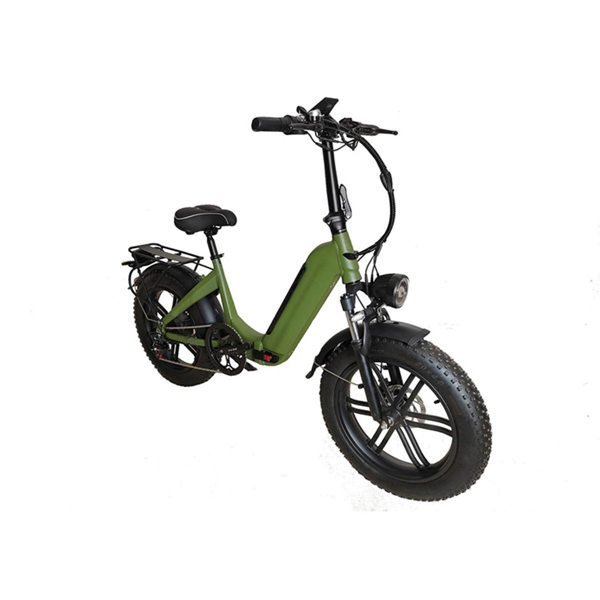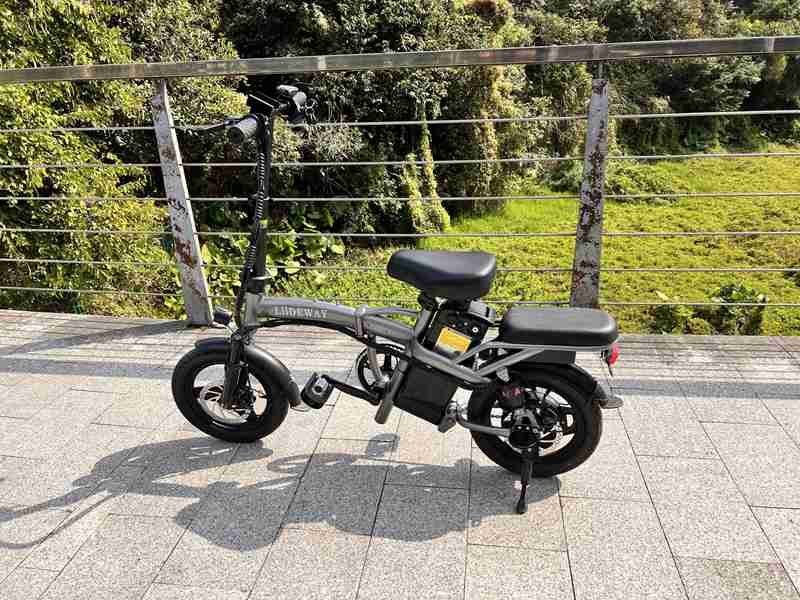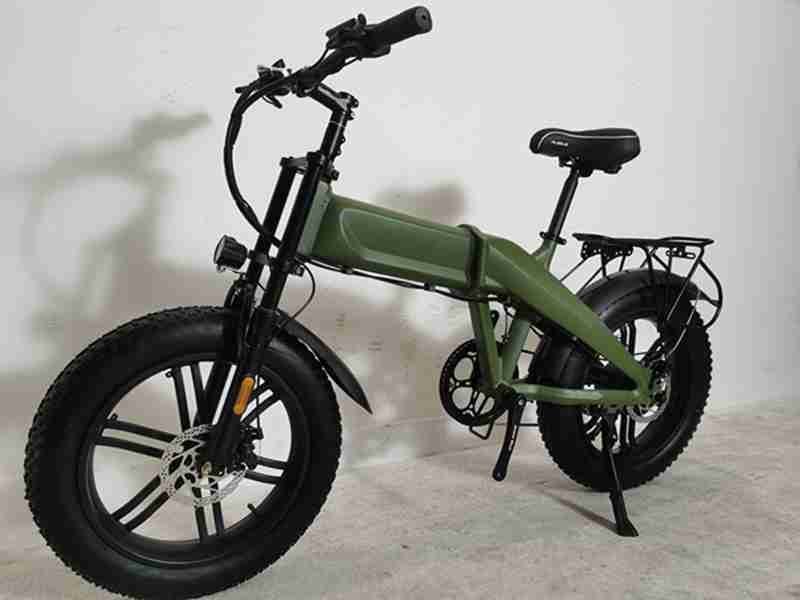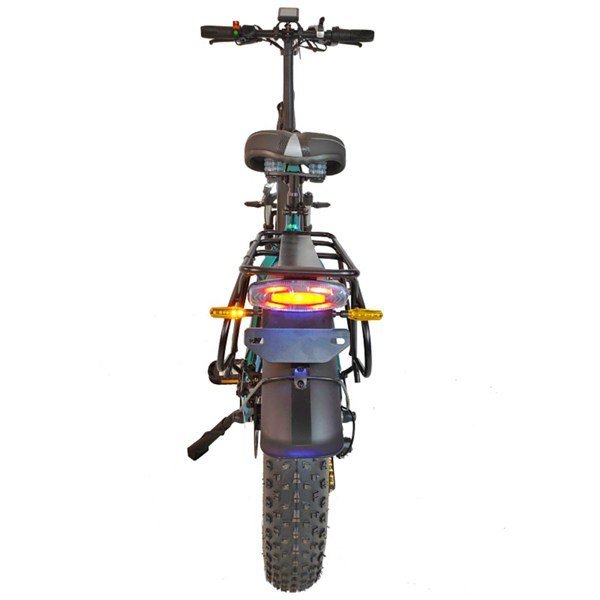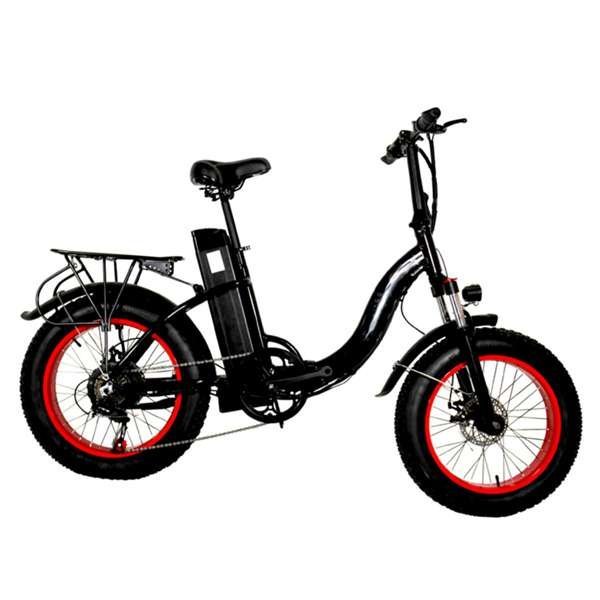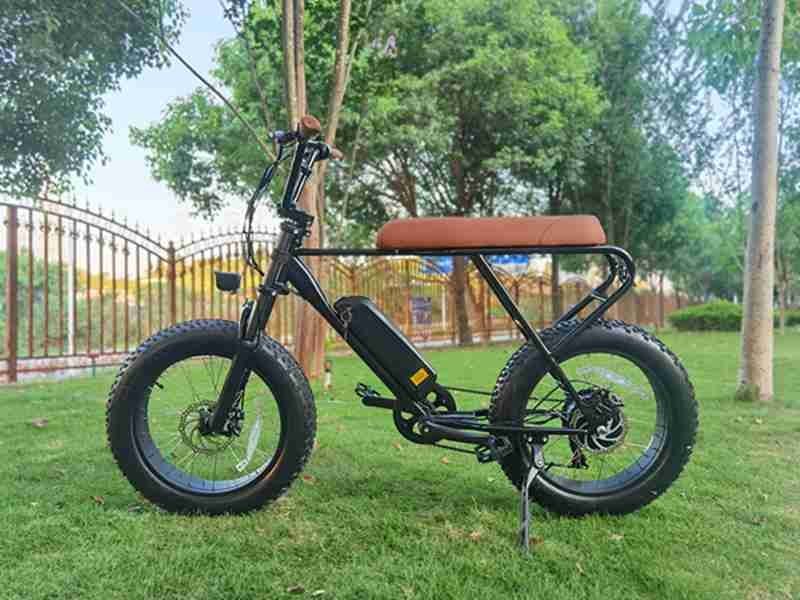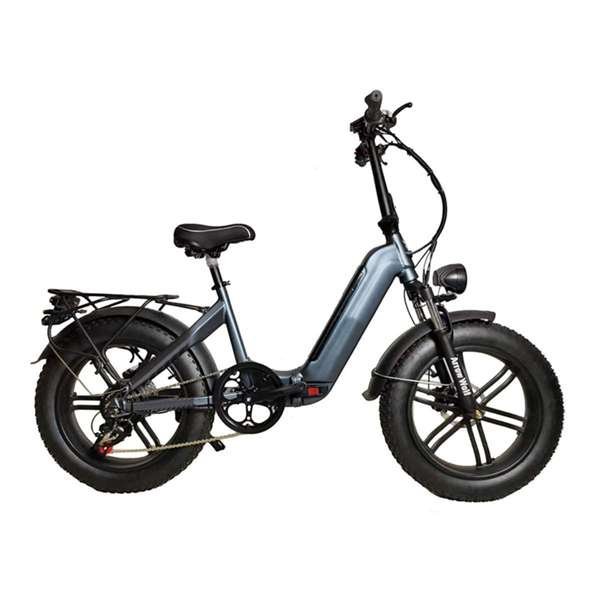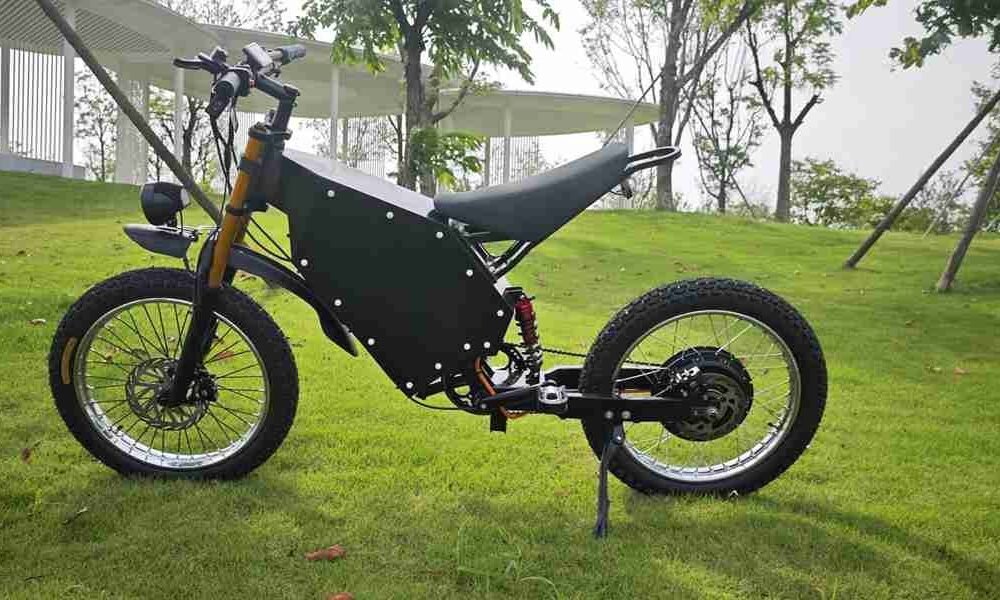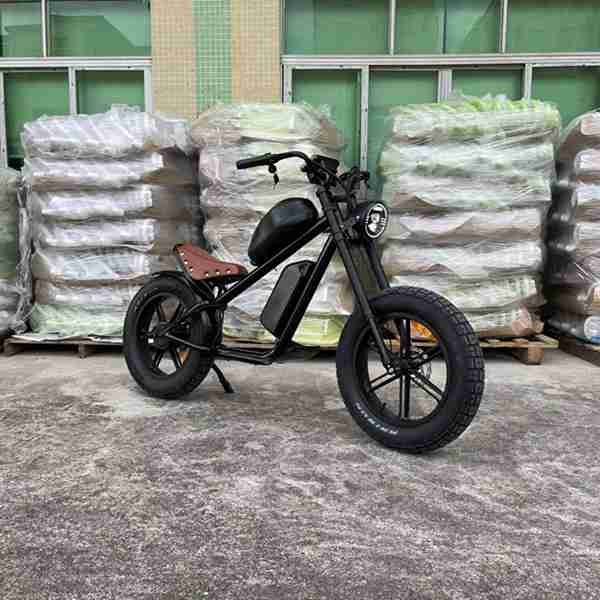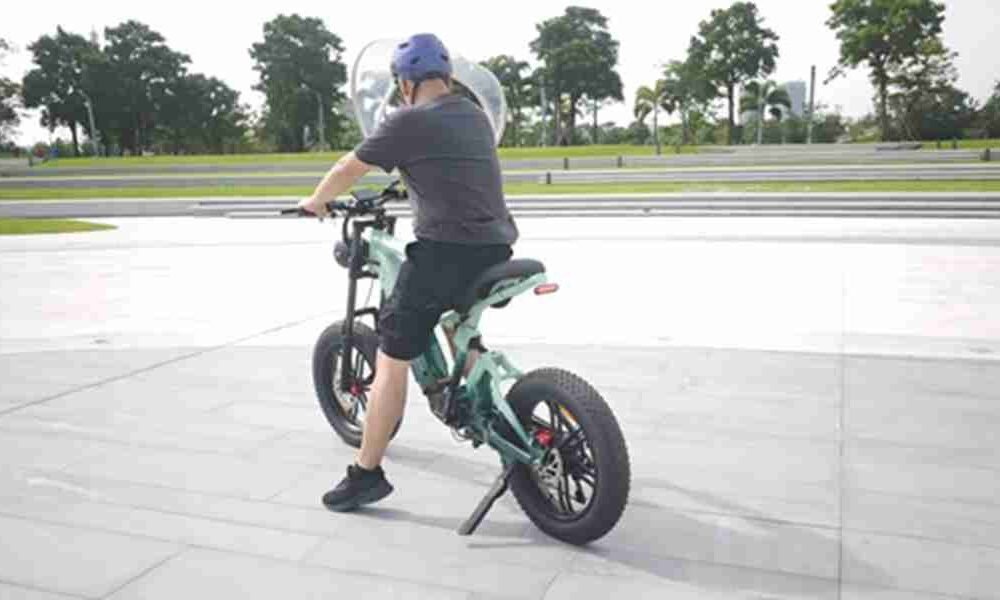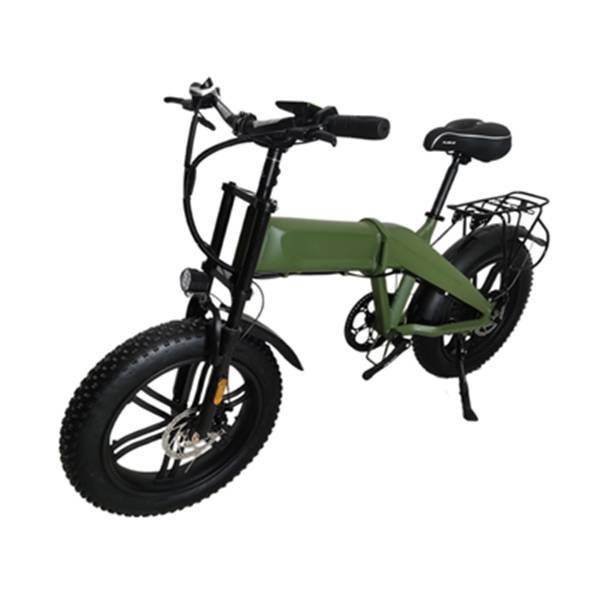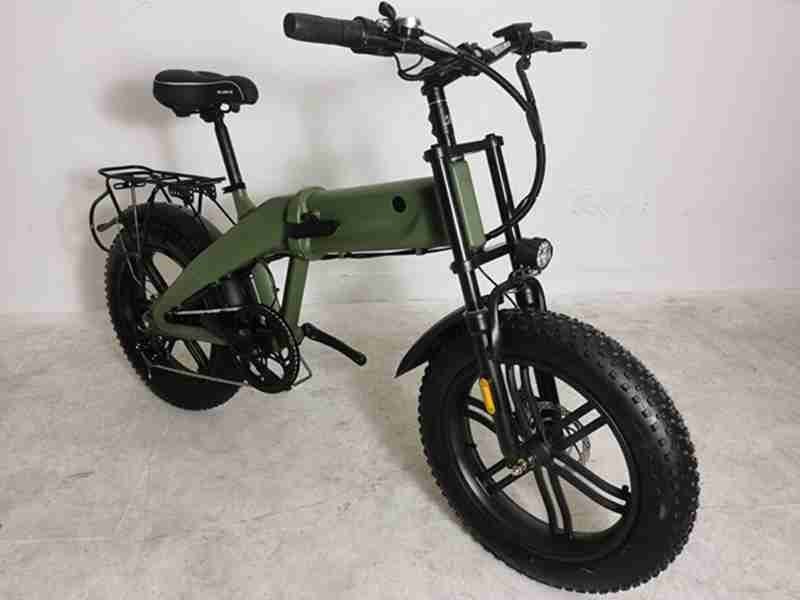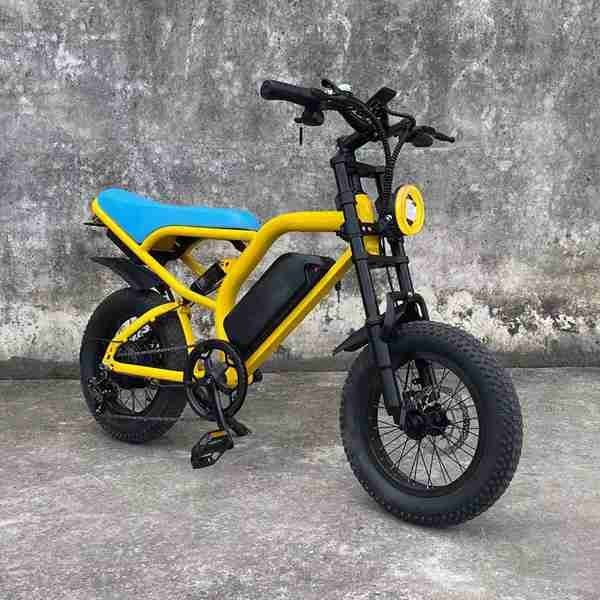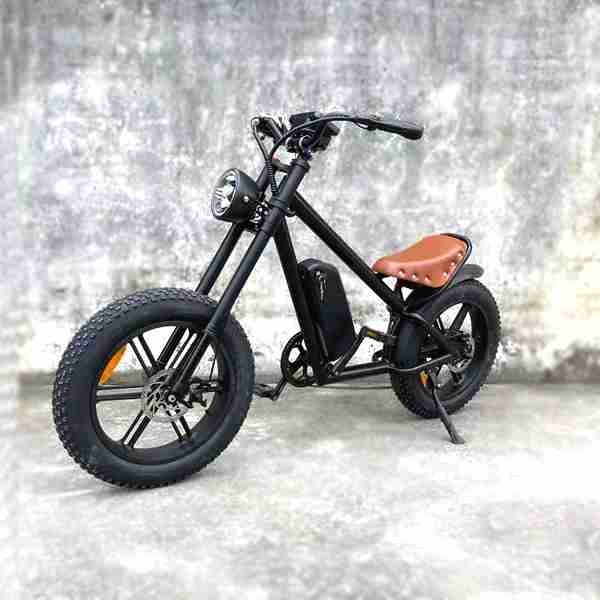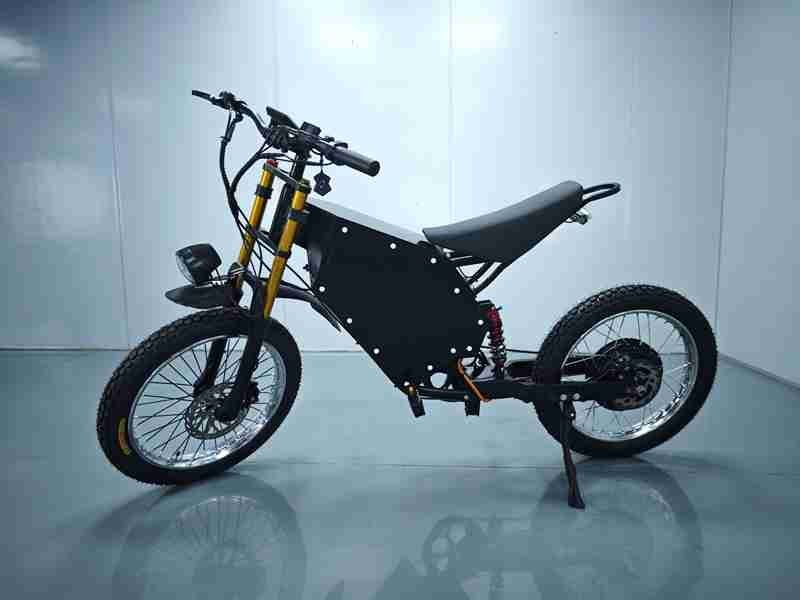Introduction to Electric Bike Front Forks
The front fork is a critical component of any electric bike (e-bike), contributing not only to the bike’s structural integrity but also its performance, comfort, and handling. The front fork connects the front wheel to the frame, absorbs shocks, and influences the bike’s stability, especially at high speeds or on rough terrain. For electric bikes, which are heavier and faster than traditional bicycles, a well-designed front fork is essential to ensure safety and enhance the riding experience. In this article, we’ll explore the significance of the electric bike front fork, the different types available, and how they affect performance across various terrains.
Types of Electric Bike Front Forks
When choosing an electric bike front fork, it’s important to consider the type that best suits your riding style and terrain. Front forks come in different designs and materials, each offering unique benefits for specific uses.
1. Rigid Forks
Rigid forks are fixed, non-suspension forks typically made from steel, aluminum, or carbon fiber. They provide a direct and sturdy connection between the front wheel and the frame, offering precision control over the bike. While rigid forks are lightweight and require little maintenance, they do not absorb shocks, making them better suited for smoother roads or city riding rather than off-road adventures. They are ideal for e-bike models designed for commuting or long-distance travel on flat terrains, such as city e-bikes.
2. Suspension Forks
Suspension forks have built-in shock absorbers that cushion the impact from rough terrain, bumps, and uneven surfaces. This type of fork is crucial for riders who traverse rocky paths, mountain trails, or rough roads, as it enhances comfort and control by absorbing vibrations. Suspension forks are commonly found on fat-tire e-bikes, snow bikes, and off-road electric models. The most common types of suspension forks include:
- Coil suspension forks: Use metal coils for shock absorption and are known for their durability and reliability on tough terrain.
- Air suspension forks: Use compressed air to absorb shocks, offering adjustable suspension travel and weight-saving benefits, making them popular in high-performance e-bikes.
Materials Used in Electric Bike Front Forks
The material of the front fork plays a significant role in its performance, weight, and durability. Depending on your needs, the material can influence how your e-bike handles on the road or trails.
1. Steel
Steel forks are known for their durability and ability to withstand impacts, making them ideal for rugged conditions and heavy-duty use. Steel has a natural ability to absorb road vibrations, which enhances rider comfort over long distances. However, steel forks tend to be heavier than those made from other materials, which may affect the overall weight of the e-bike.
2. Aluminum
Aluminum is a popular choice for front forks due to its lightweight nature and corrosion resistance. It¡¯s often used in city and commuter e-bikes where weight reduction is a priority. Although aluminum is stiffer than steel, it can transfer more vibrations to the rider, which may lead to a slightly less comfortable ride on rough surfaces. Nevertheless, aluminum front forks strike a good balance between durability, weight, and performance, making them suitable for a variety of riding styles.
3. Carbon Fiber
Carbon fiber front forks are favored for their lightweight properties and shock-absorbing characteristics. This material offers superior stiffness and strength without adding significant weight to the e-bike. Additionally, carbon fiber dampens vibrations, resulting in a smoother ride even on rough surfaces. However, carbon fiber forks are generally more expensive and are typically found on high-end electric bikes designed for performance enthusiasts or long-distance travelers.
How the Front Fork Impacts E-Bike Performance
The front fork on an electric bike has a direct impact on the bike¡¯s overall performance, particularly in areas like handling, comfort, and speed.
1. Stability and Handling
The type of front fork affects how well the e-bike handles, especially during turns, high-speed descents, or when riding over uneven terrain. Suspension forks enhance stability by reducing the impact of bumps and ensuring that the front wheel maintains consistent contact with the ground. This increases control and minimizes the risk of accidents, especially on off-road paths.
On the other hand, rigid forks offer more precise handling and quicker response times, which is beneficial in urban environments where riders need to navigate through traffic or make sharp turns.
2. Comfort
Suspension forks are specifically designed to improve ride comfort by absorbing the shocks and vibrations that occur on uneven surfaces. This feature is especially important for long-distance travelers or riders who frequently encounter rough terrain. By reducing the amount of shock transferred to the rider, suspension forks prevent fatigue and provide a more pleasant riding experience.
3. Speed and Efficiency
Rigid forks contribute to better pedaling efficiency, as no energy is lost in the movement of the suspension. This makes them ideal for commuters or riders who prioritize speed and energy conservation on paved roads. Suspension forks, on the other hand, may slightly reduce efficiency due to the energy absorbed by the suspension mechanism. However, on rough terrain, the trade-off is worth it, as they prevent loss of traction and make it easier to maintain a steady speed.
Choosing the Right Front Fork for Your Electric Bike
Choosing the right front fork depends on your specific riding needs and the terrain you plan to navigate. Here are some recommendations:
- City and Commuter E-Bikes: For city or road commuting, a rigid aluminum or carbon fiber fork is a good choice. These forks are lightweight and efficient, offering great control on smooth, flat surfaces.
- Off-Road and Fat-Tire E-Bikes: If you¡¯re an off-road enthusiast, consider an e-bike with a suspension fork, especially one with coil or air suspension. This will provide the comfort and control needed for rugged terrains like mountain trails or snow.
- Hybrid E-Bikes: A hybrid approach with adjustable suspension forks can offer the best of both worlds for riders who want versatility in their electric bike. These allow you to switch between rigid and suspension modes, depending on your environment.
Conclusion
The electric bike front fork is a fundamental component that affects your riding experience, whether you¡¯re commuting through the city or exploring off-road trails. By understanding the different types of front forks, their materials, and how they impact performance, you can make an informed decision when choosing the best e-bike for your needs. Whether you prioritize speed, comfort, or rugged durability, there’s a front fork design that will match your riding style and maximize the potential of your electric bike.
You maybe Like:
- Uncategorized
electric bike cargo liideway
- Uncategorized
electric bike 500w liideway
- Uncategorized
electric bike kit 3000 watt hub motor kit 72v liideway
- Uncategorized
electric bike e-bikes liideway
- Uncategorized
fido d3 pro electric bike liideway manufacturer
- Uncategorized
duel motor electric bike liideway manufacturer
- Uncategorized
orange electric bike liideway manufacturer
- Uncategorized
electric e-bike liideway manufacturer
- Uncategorized
electric cargo bike 4 wheel liideway manufacturer
- Uncategorized
electric bike adult liideway manufacturer
- Uncategorized
folding electric bike frame liideway manufacturer
LIIDEWAY most popular Electric scooter are linked below:
T1 Single Motor 10inch off road tire
T1Pro Double motor 48v 23AH battery
T14 Single Motor 12inch city road tire
T6(Double motor)
T7 Double motor 11inch off road tire
T8 Double motor 60v 20AH battery
T9(Double motor)
T10 Double motor 11inch off road tire
LW3-Wheel(3wheel)
T5 Double motor 72v 50AH battery
T4 Double motor 60v 20AH battery
T11 Double motor Acrylic LED board
T13 Electric Snow Scooter 1500w motor

